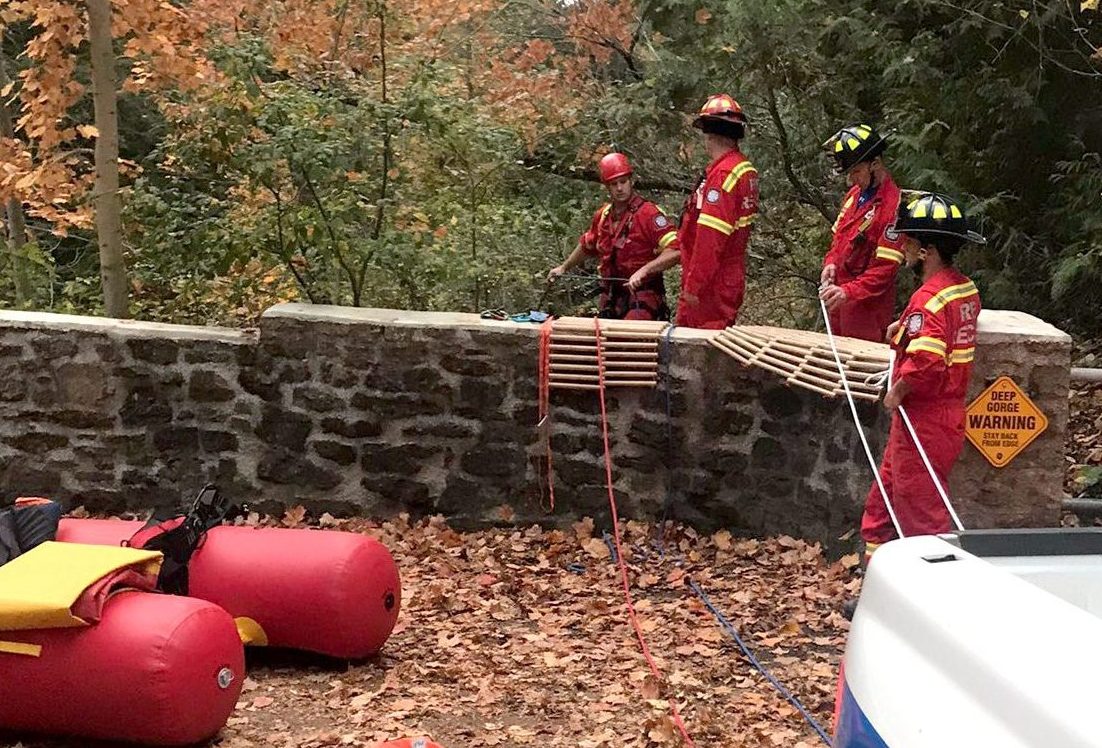ELORA – Centre Wellington Fire and Rescue Services responded to a water rescue at the Elora Gorge on Thursday evening after two kayakers found themselves stranded along the riverbank, unable to get back up the river.
The call came in at around 5:30pm on Oct. 14 and firefighters from the Fergus and Elora stations arrived at the Elora Gorge Conservation Area shortly after and removed the two individuals, a father and son, from the water.
The two-station response saw approximately 25 firefighters on scene.
Deputy fire chief Jonathan Karn said the incident occurred in the river at the high-level bridge inside the park.
He said he couldn’t confirm whether the duo capsized, but they had been separated from their kayaks.
“They had come to an area of the river that was moving really quickly and they had come out of their kayaks, so they were up on the bank with no way to get out,” he explained.
“They had been in the water and they were able to get themselves out to the riverbank, but they were still down in the bottom,” he said, adding “there’s really nowhere to go once you’re down at the bottom if you’re up on the edge.”
Karn said firefighters performed two separate rescues due to the nature of the area, adding it was about two and a half hours before they left the scene.
The first rescue was a rope rescue. Two firefighters were sent down for the one individual and brought him back up with the rope.
The second person was rescued with a boat. Karn said crews were sent down on the boat to retrieve the second person, bringing them back to where they could safely exit the river.
Guelph-Wellington paramedics were also on scene, in addition to Wellington County OPP and Elora Gorge Conservation Area security staff.
No injuries were reported. Karn said both people were assessed on scene but neither one was transported to hospital.
He said while the individuals had taken safety precautions, the water may have been moving faster than they initially thought, and the river fluctuates with rainfall.
“They had life jackets, they had their safety equipment … but I think it was just an area of the river that maybe wasn’t familiar, and they felt it was a little more dangerous than what they expected it to be,” said Karn.




